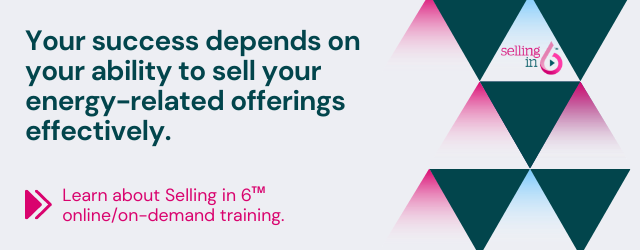Organization is key. That's why we typically dedicate a day of our blog every week to time management and productivity tips. Today, I’d like to offer some important tips on streamlining your approach to prospects, particularly if you’re dealing with different segments and locations.

You need to have a database for your sales opportunities.
Before business became digital you had to use a ledger. These days the equivalent is an online Customer Relationship Management (CRM) tool like Salesforce, HubSpot, or Zoho. If you’re looking for something less sophisticated, you could easily create your own database on a spreadsheet, but I wouldn’t recommend doing so given how quickly it becomes unwieldy as your universe of prospects starts to expand.
Whatever you choose, the most important thing is to keep all of your opportunities in one place. You can’t make it by using Post-It notes, various other scraps of paper, notebooks… and especially not your email inbox. Things will inevitably slip through the cracks.
You need to make sure your mind is not running all over the place.
The best analogy for this is a compost pile. If everything is stacked and rotated the compost will break down into high-quality topsoil. Now imagine a compost pile that’s been indiscriminately raked into a thin, disorganized layer across a lawn. You're going to wind up with a lawn full of food scraps and garbage for a very long time.
The solution? You really need to focus. Concentrate on the contacts with whom you’ve had the most success. From there you can map out similar individuals and businesses within a certain distance. Call each of them and pitch comparable services. All it takes is our three-sentence solicitation: "We just did this project for _______ on _______ Street and they have experienced a savings of _______ and _______. I’ve noticed that you are still using the _______ we recently replaced in that building. If you’d like to explore how we could extend the success we delivered for that client to your facilities, I would be open to a conversation.” You might add a fourth sentence: “And I can assure you that you’ll find the info I share in our call to be very worthwhile whether or not we wind up doing business.” Prospects are necessarily selfish with their time. They need to know that they won’t have to buy something from you in order to derive value from making time in their busy schedule for that call.
As a final tip, I would recommend one of our five required textbooks for the Selling Energy Boot Camp: Getting Things Done: The Art of Stress-Free Productivity by David Allen. If you’re looking for more advice in this vein, I would pick up a copy of that as well.







